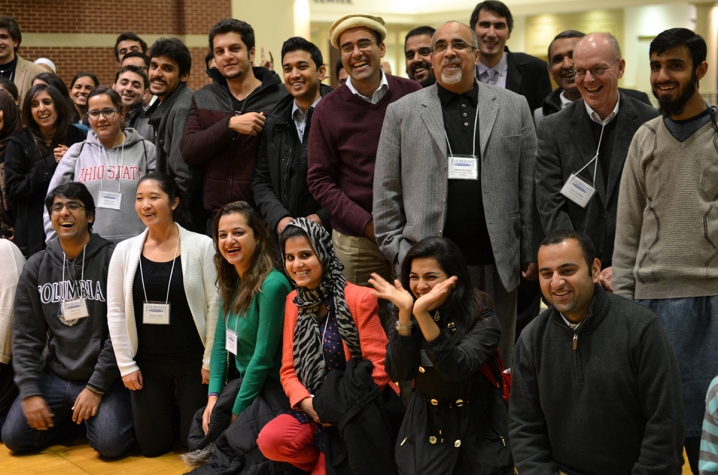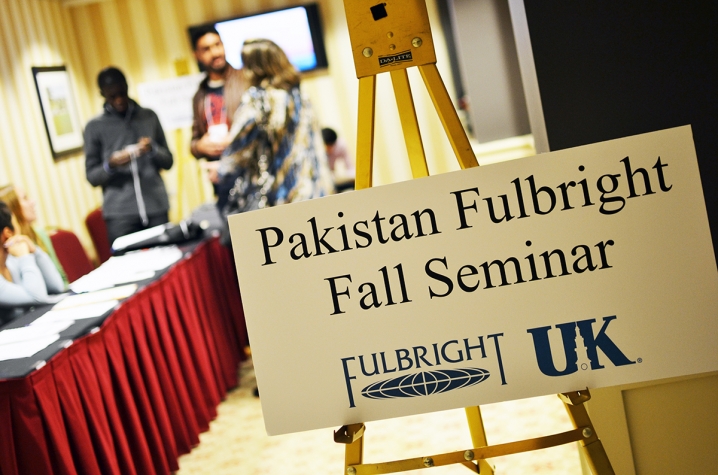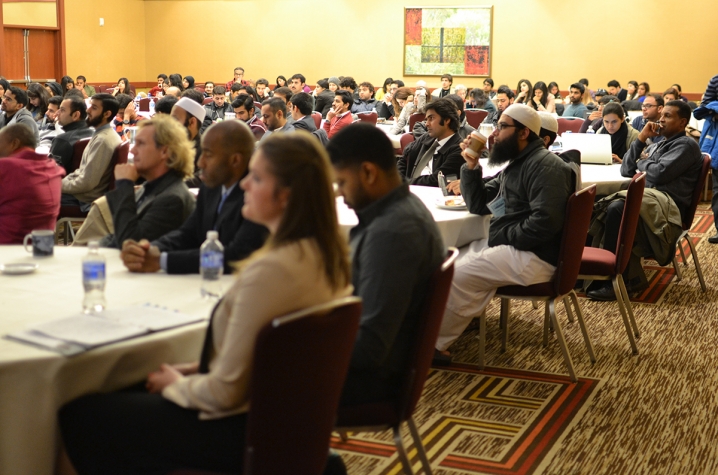Pakistani Fulbright Scholars Learn Valuable Lessons in Social Movement Seminar
LEXINGTON, Ky. (Nov. 24, 2014) — The University of Kentucky International Center hosted 142 Pakistani graduate students who are studying in the U.S. through the Fulbright scholarship program for the Fulbright Pakistan Enrichment Seminar on Social Movements from Nov. 5-9.
The seminar, which was sponsored by the U.S. Department of State and the U.S. Education Foundation in Pakistan, focused on the U.S. civil rights movement and its impact on today’s culture. Pakistani students were also mentored by other Fulbright scholars on tactics for success in U.S. graduate schools.
“The original reason that Sen. Fulbright of Arkansas created this program after World War II was to promote peace. One of the goals of the seminar was to promote mutual understanding between Pakistanis and Americans,” said Rita Akhtar, executive director of the U.S. Educational Foundation in Pakistan.
Various sessions about slavery, the civil rights movement and women’s rights helped the Pakistani students understand some of the major social issues in the U.S. and how they have shaped this country.
“When you come from a country that is more developed than yours, you’re often inclined to compare the two countries. But these sessions highlight that even developed countries like the U.S. have their own problems,” said Meenah Tariq, Pakistani Fulbright mentor and business student at Boston College. “But this is a lesson of hope, because things got better. And that’s what we came here to learn.”
Learning and discussing these sensitive topics was a “confidence-booster” for many of the Pakistani students, said Menaal Ebrahim, environmental management student at Yale University and seminar attendee.
“Participating in the sessions and learning about important pieces of U.S. history helped us Pakistanis feel more at home. We, as outsiders, did not know this history,” Ebrahim said. “There’s so much to learn from this seminar about ethnic and gender discrimination to bring back home to Pakistan.”
Another goal of the session is to prepare the Pakistani students for life in a U.S. graduate school, which has a much different approach to professor-student relationships.
“In Pakistan, the professor is not at the same level as his students. They’re not considered peers at all. But in the U.S., students experience more peerism,” Tariq said.
This closer relationship between professors and students allows for more open discussion and contribution from students. Tariq noted that U.S. professors are less likely to suppress out-of-the-box thinking, which encourages students to speak-up both in and out of class. The seminar helped prepare the Pakistani students for this new dynamic to get the most out of their U.S. education.
The Fulbright Commission in Pakistan hopes that its scholars who return to Pakistan will contribute to the economic and developmental improvement of the country, said Akhtar.
“We need to help make Pakistan a better place,” she said. “I believe that’s what we’re trying to do with the Fulbright program, and that’s why students came to this seminar — partly to get adjusted to studying in the U.S., but they are also networking with each other so that when they return to Pakistan, they can work together to bring the kind of change we’re hoping for.”
This change also includes diversifying the workforce in Pakistan to include more women. About half of the Pakistani Fulbright grantees are women, Akhtar said. She hopes that these women will return to Pakistan with their degrees to make a difference in the work culture of the country, which is largely dominated by men.
“The reason many Pakistan women do not work is because the work culture is so unwelcoming to females,” Akhtar said. “So I think these Fulbright women will be real trailblazers who will change the nature of the workforce in Pakistan.”
The Fulbright Program is the U.S. government’s flagship program for international education exchange. Since 1946, more than 360,000 participants from more than 155 countries have had the opportunity to study in other countries and to contribute to finding solutions for international concerns.
MEDIA CONTACT: Sarah Geegan (859) 257-5365; sarah.geegan@uky.edu







